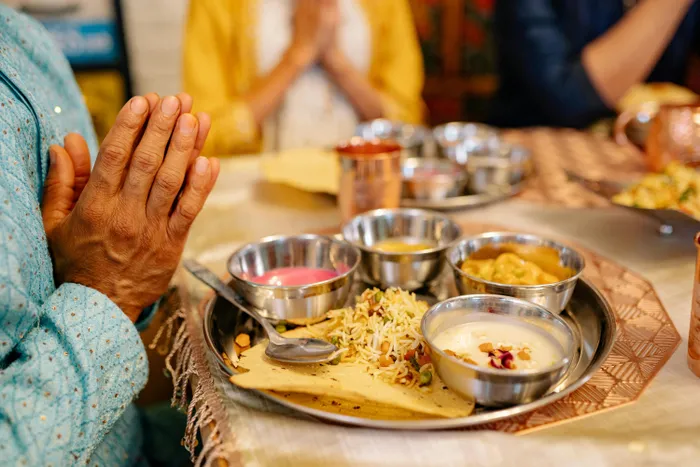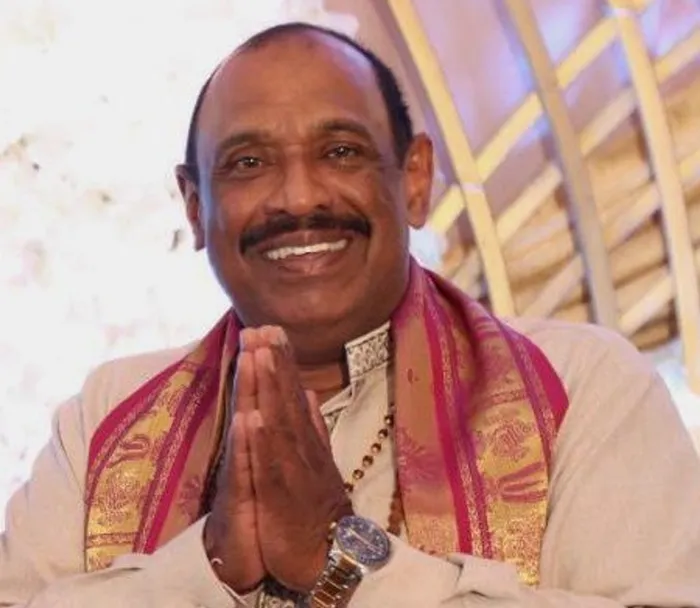
Deepavali is a time for happiness and harmony, says the writer.
Image: Yan Krukau /Pexels.com
THE much-awaited Deepavali festival has adopted an international status with grand celebrations taking place in almost every major city in the world.
To Hindus the festival is not only about new clothes, food, entertainment, fun, festivities, revelry and fireworks but a time for prayer, reflection and charity.
Here in South Africa and across the global Hindu diaspora, this Festival of Lights holds both religious and spiritual significance often centered around the triumph of light over darkness, knowledge over ignorance and good over evil.
A typical, traditional Deepavali day begins before sunrise with family members taking the traditional oil bath, which is considered to be equivalent to a holy dip in the Ganges river (cleansing of the body and soul, washing away past sins and ego).
The three oils (one should be gingelly or sesame seed oil) represents grace and its application is similar to invoking Divine blessings. Lord Krishna is known to have taken the three oil bath after slaying the demon Narakasura.
The three oil bath is followed by the adorning of new traditional clothes, which spiritually symbolises the concept of shedding old ways, actions and habits (past bad karma) and embracing a new, purified version of oneself. Furthermore, the wearing of new clothes symbolises renewal and inner transformation.
The women of the home will then prepare sweets like adhirasam, jalebi, gulab jamun, burfee and savouries like vade, murukku, samoosas, etc. The baking of these delicacies for Diwali is known to begin days or weeks before the festival day.
The altar or pooja room in the home is decorated with flower garlands, kolams, colour lights and other Deepavali decorations and all symbols of divinity, including the murthies (statues) and God lamp are ritualistically bathed (abhishegam) in preparation for the prayer. Family members then assemble in the prayer room where an offering of three kinds of fruit, milk, coconut, betel nut and betel leaf, incense, etc, together with the sweet delicacies are placed at the altar.
Lord Ganesha, the Lord of beginnings, is invoked to clear impediments on the spiritual path. The prayer to Mother Lakshmi, which is central to the Deepavali prayer, is aimed at invoking prosperity, good health, happiness, success and the wellbeing of the family. Since Deepavali celebrates the victory of faith over fear, the forces of light over darkness and the forces of virtue over vice, Lord Rama, Lord Hanuman, Lord Krishna, Lord Nrsimha and various other manifestations of Divinity are propitiated. Food is regarded as prasadam and the offering to Divinity before consumption represents spiritual nourishment.
Family members will then sit for the lavish Diwali meal and also enjoy the savouries and sweetmeats.
The parcels of sweetmeats, sweets, fireworks, savouries and gifts shared with neighbours, friends, relatives and less fortunate families, demonstrates unequivocally that Deepavali is a special festival of healing and helping, friendship and fellowship, goodwill and generosity, and a way of sharing and caring. This exchange of gifts and parcels of delicacies provide families the opportunity to visit friends and relatives and exchange Deepavali greetings. It's in giving that we receive and in sharing that we preserve.
Deepavali is a time for happiness and harmony, a time to forget old wounds, to forgive past hurt and to rekindle new hopes and aspirations.
The afternoon is spent in preparing and lighting the traditional clay lamps, which are then arranged inside and outside the home, on the windows sills, on the boundary walls and in the courtyard. The lighting of the lamp is indicative of enlightenment, awareness and consciousness. The simple yet enchanting clay lamp with its soft and all pervading glow gives Deepavali its spectacular spiritual significance.
The festival invites us to light our inner light of wisdom and knowing and to dispel the darkness of not knowing. The row of clay lamps, though differing in many ways (shape, size and brightness) provide one glorious illumination, denoting that collective action generates mutual benefit.
The funfilled Deepavali day culminates in the kaleidoscopic fireworks that light up the night sky. In fact, the sporadic sounds of fireworks can be heard during Deepavali day and in the days leading up to the festival. The sound and light emitted by the fireworks are believed to drive away evil and negative energies but, most importantly, the fireworks display celebrates the triumphant victory of the light of Divinity over the forces of darkness.

Guru Kriba Vayapuri
Image: File
Guru Kriba Vayapuri is a Hindu religious leader and priest.
Related Topics: